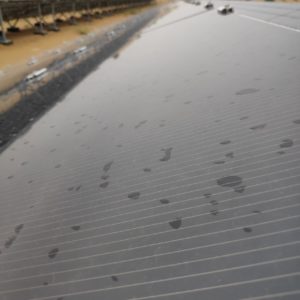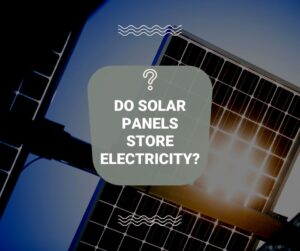STC simply means Standard Test Conditions. It refers to the standard group of conditions in the laboratory wherein solar panels will be subjected to power measurement tests before it goes available to the market. These test conditions include irradiance of 1000 Watts per square meter, the cell temperature at 25 degrees Celsius, and 1.5 air mass.
When these fixed conditions are used, all solar panels may be more appropriately compared and evaluated from one manufacturer against the other.
Manufacturers use STC testing to ensure that photovoltaic panels with similar energy output can be sold and used together. However, idealized conditions don’t reflect the actual site conditions under which a PV module will operate.
This is one of the most important factors that measure the output performance of solar panels. Hence, you will need to have a strong understanding of STC before you go ahead and buy solar panels for your needs.
Understanding Standard Test Conditions of Solar Panels

The electric output performance that you can get from PV modules and solar cells can be measured when they are subjected to standard test conditions or STC.
This would refer to the output evaluation that you can get from a set of solar modules through an independent comparison. STC is the standardized method used within the industry to determine the performance of solar panels.
Basically, these test conditions refer to a laboratory environment where the irradiance is maintained at 1000W per square meter, the cell temperature is maintained at 25 degrees Celsius, and at 1.5 air mass.
This would represent the spectrum and irradiance of sunlight, which you are getting on a clear day, where the surface of solar panels is positioned at an angle of 37 degrees tilted towards the sun.
While adhering to this standard output performance measuring unit, we will be able to go ahead and compare the functionality delivered by different solar panels effectively.
What is Air Mass and How is it Measured?
In atmospheric science, an air mass is a volume of gas defined by the temperature and humidity of the air. Air masses can travel long distances and adapt to the characteristics of their environment. They are classified into two categories based on latitude and whether they originated on land or sea.
The air mass can be estimated as the sum of nitrogen’s two 14-atomic-unit atoms, oxygen’s two 16-atomic-unit atoms, and argon’s single 18-atomic-unit atoms to account for these molecules’ influence air pressure.
Why is STC Important?
When it comes to purchasing solar panels, you will notice numerous options to consider. However, not all of those options would be ideal for your needs. This is why you must find solar panels appropriate for your needs. When trying to comprehend it, the STC rating will be beneficial.
The STC rating in solar panels defines how efficiently solar energy can be produced using the solar panels that you are using. When you compare various solar panels, you will notice different STC ratings.
As a result, you will compare the differences and select a solar panel that meets your needs. This will assist you in purchasing the exact solar panels that you require.
Difference Between STC and NOCT
Solar panel manufacturers worldwide are using STC as a factor to test and rate the solar panels that they are manufacturing. When you look at the STC rating, you should focus more on the rated power or maximum power rating. The nominal figure determines the peak power output that you can generate from the solar panels you have.
It is also essential to keep in mind that the STC value of a solar panel would not represent how it is functioning under actual operating conditions. That’s because STC ratings have been obtained under standardized conditions. The temperature is much higher than 25 degrees Celsius when it comes to the actual operating conditions.
It can even be high as over 40 degrees Celsius. The overall performance associated with the crystalline silicon modules would drop at such high temperatures. In fact, the performance drops by 0.5% for every rise in temperature by 1 degree of Celsius. It would be best to rely on the STC rating while keeping this fact in mind.
Solar panels obtain solar energy converted into electrical energy and thermal energy. During this process, the temperature of the solar cells and modules will increase. This can create an impact on the electricity produced.
You will not use a straightforward method to measure the module temperature. That’s because meteorological variations are taking place under operating conditions. This is why the scientists came up with a simplified calculation method called NOCT.
NOCT stands for Nominal Operating Cell Temperature. This is the cell temperature that you can find in an open circuit PV module. If the NOCT factor is high, you will have to experience a higher loss of power generated out of the solar panels. Therefore, you need to keep the fact in mind and purchase solar panels for your use accordingly.
Final Thoughts
When purchasing solar panels, you are highly concerned about their efficiency. In other words, you expect the solar panels you buy to produce a higher amount of power that you can extract out of them.
Only then can you make sure that you don’t have to spend your money unnecessarily purchasing solar panels. On the other hand, you can also limit the total area you are covering up with the solar panels.
To make sure that you go for the right decision when buying solar panels, you will need to focus on STC rating. It would ensure that you purchase solar panels that match your purpose.
On top of that, you will also need to look at NOCT, as it would help you understand how much energy you can generate and whether the solar panels match the purpose you have.
Don’t forget to sign up to our email list today! Be part of the Solar Powered Fam!


















